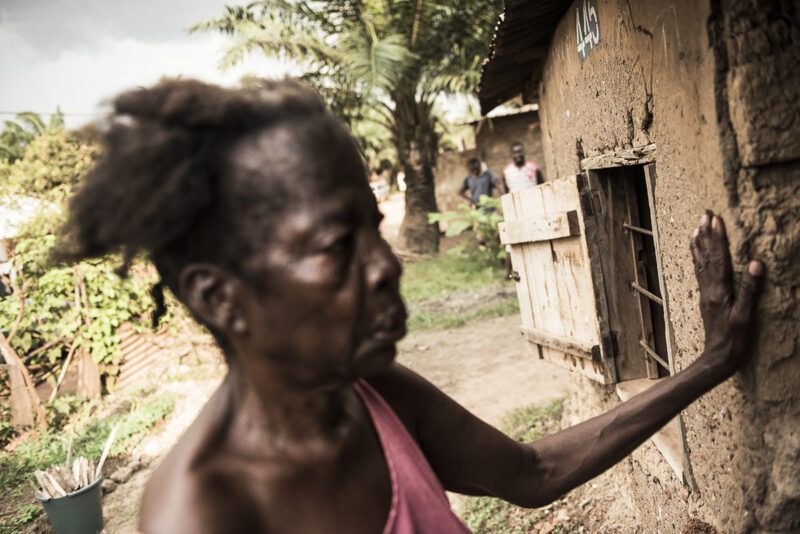Global Issues
No Safe Place for Alleged Witches in the Central African Republic -By Leo Igwe

An Al Jazeera report has revealed the dangers that alleged witches face in the Central African Republic. But is that really news? Not at all. CAR is one of those African countries where witch persecution is pervasive. There have been several reports and studies of how this country of 4.6 million people has grappled with the destructive phenomenon since independence. This report is replete with many gaps and misleading insights.
The report links witch persecution to social disintegration occasioned by a brutal civil war in the country. That is a valid point, isn’t it? But if one may ask: Was CAR socially integrated before the war? CAR did not have a socially robust system before the conflict, did it? So one needs to take a critical look at a report that draws a connection between witch persecution and the conflict in the CAR. No doubt, the war has destroyed institutions that could have been used to protect and defend elderly persons especially women. Thus there are no effective mechanisms to guarantee the safety of this vulnerable population. So the report concludes that alleged witches are attacked and killed with impunity in the CAR. Now, since witchcraft allegations and witch persecution predate the civil war on the CAR, it is pertinent to look beyond the conflict for a more persuasive explanation of the manifestation of witch persecution in contemporary CAR. Some of the factors linked to the war had been there before the war- a dearth of medical personnel, poor health infrastructure, witch finding chiefs, etc. The war could only have exacerbated the social conditions and made the target population more vulnerable. Now let us look at the issues raised in the report.

Leo Igwe
Sentence Without Appeal
The report quoted the president of the female lawyers association in the CAR, Nadia Carine Fornel Poutou who said that the existing law was unhelpful in resolving witchcraft matters. State laws in the CAR do not recognize mystical matters so state authorities cannot intervene in witchcraft issues. But this is nonsense. Must state laws acknowledge the reality of witchcraft before it can effectively tackle related crimes? This often-repeated proposition in African witchcraft literature is sterile and misguided. It has been advanced to give witch persecution as in the case of the CAR a free pass and to exoticize African witchcraft. State authorities should be pressured to enforce the law and tackle witch persecution. There is an ample provision under the law for the prosecution and punishment of those who make false allegations or those who take laws into their hands by attacking or killing alleged witches. Criminals should not be excused or exonerated on the ground that the state law does not deal with mystical issues as the report suggests. State laws deal with murder, assault, and abduction. Don’t they? In cases where the state authorities are failing in their duties, measures must be taken to compel state actors to fulfill their responsibility to protect citizens.
Unsafe At Home and In Prison
The report notes that death is inescapable for alleged witches in the CAR. Alleged witches could be killed by the mob. They also suffer death while locked up in their homes or in prison. Alleged witches have to choose between self-imprisonment at a family house or voluntary state imprisonment.
While imprisoned at home, they seldom venture outside because they could be attacked or killed. But family imprisonment is effective in situations where some family members support the accused. Otherwise alleged witches flee to the state prisons. Even in public prisons, alleged witches are not safe. As the report says, they could also be attacked and killed by witch believing prison guards or other prisoners.
In linking witch persecution to the conflict, the report states that thousands of persons who have been traumatized by the war are prone to be accused of witchcraft. But there is an oversight in drawing this connection. The report ignores the state of mind of the accusers. It overlooks the fact that those traumatized by the conflict are likely to indulge in witchcraft allegations. Trauma engenders irrational fears and anxieties. Witchcraft allegations originate from the accusers, not the accused, and should be explained in relation to the mental state of the accusers, not the accused. So it is the imputers of witchcraft who need psychiatric attention and care. Incidentally, the report rehashes the mistaken position of some western anthropologists who explain the manifestation of witchcraft allegations in relation to the state of mind of the accused. The field of African witchcraft is in need of an analytical shift. This shift in focus from the accused to the accusers is vital in properly situating witchcraft allegations and in understanding the precarious state of alleged witches in the region.
The Advocacy for Alleged Witches urges the authorities in the CAR to take administrative and legislative measures to combat witch persecution in the country. Given the pervasiveness of witchcraft-related abuse, CAR needs to declare witch persecution a humanitarian emergency because witchcraft allegation poses a serious threat to the life, health, safety, security, and well being of the citizens. CAR should prosecute a national awareness program to educate and reorient witchcraft believers and accusers in the country. The people of the CAR need to realize that witchcraft is superstition and that alleged witches are innocent. State authorities and community leaders should cooperate in dispelling witchcraft fears and anxieties. The practice of witch-hunting – witch trial and forced confession- should stop. Local chiefs should use their positions to educate and enlighten the people in their various communities. They should stop the practice of using potions to establish the guilt of occult harm or to coerce alleged witches to confess. CAR should get its citizens to abandon the belief in witchcraft and other superstitions and embrace science, reason, and critical thinking.









